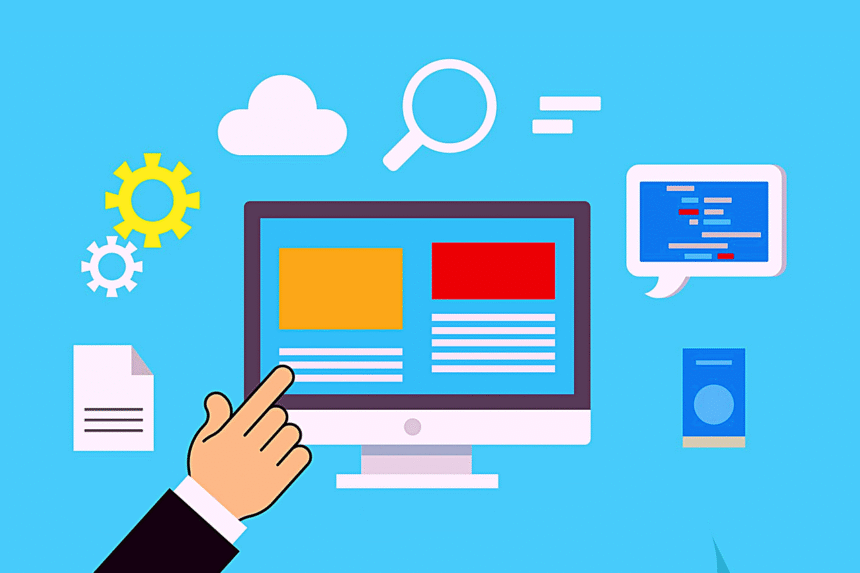Education has long been recognized as the foundation of social and economic transformation. For Africa, a continent with the world’s youngest population, education is not only about knowledge transfer but also about unlocking future opportunities. By 2050, Africa is expected to host nearly 2.5 billion people, with more than half under the age of 25. This youthful energy, if equipped with the right skills, could become a major driver of innovation, productivity, and global competitiveness.
At the same time, artificial intelligence (AI) is reshaping industries worldwide. From healthcare to finance, agriculture to entertainment, AI is becoming a key enabler of growth. In education, its impact is even more profound. Intelligent systems can personalize learning, translate languages, automate assessments, and bridge teacher shortages.
The intersection of AI, education, and skills development in Africa presents a unique opportunity. If harnessed correctly, AI can address deep-rooted challenges in the education sector while equipping African youth with the skills needed for the future of work. But this journey is not without hurdles: infrastructure gaps, policy barriers, and ethical concerns must all be addressed.
This article explores how AI is transforming education and skills in Africa, highlighting opportunities, challenges, and pathways for a brighter future.
The State of Education in Africa
Despite progress over the past two decades, Africa’s education systems face persistent challenges. According to UNESCO, more than 98 million children and youth in Sub-Saharan Africa are out of school. Even for those enrolled, the quality of education is often inadequate, with overcrowded classrooms, undertrained teachers, and limited access to learning resources.
Access and Equity
Rural-urban disparities remain sharp. In remote areas, many students must walk long distances to school, and facilities are often under-resourced. Gender gaps also persist, with millions of girls missing out on education due to cultural, economic, or safety-related factors.
Teacher Shortages
Africa faces a severe teacher shortage. The continent needs to recruit an estimated 17 million additional teachers by 2030 to achieve universal education. Even where teachers are present, many lack the training and tools necessary to deliver modern, skills-based education.
Language and Cultural Barriers
Africa is the most linguistically diverse continent, with over 2,000 languages spoken. Most educational materials are available only in global languages such as English or French, leaving millions of learners at a disadvantage.
Digital Divide
While mobile penetration is high, internet connectivity remains uneven. In many rural regions, schools lack electricity, let alone internet-enabled devices. This digital gap directly limits access to online learning opportunities.
These challenges underscore why traditional approaches alone cannot close Africa’s education gap. Innovative solutions, especially those driven by AI, could play a transformative role.
What AI Brings to Education
Artificial intelligence is not a silver bullet, but it has the potential to address many of Africa’s educational challenges if integrated thoughtfully.
Personalized Learning
AI-powered platforms can adapt content to suit individual learning speeds and styles. For example, an AI tutor can identify when a student struggles with a math concept and provide extra practice or alternative explanations. This is particularly valuable in crowded classrooms, where teachers cannot always give personalized attention.
Intelligent Tutoring Systems
Chatbots and virtual assistants powered by AI can act as round-the-clock tutors. They can answer student questions, guide assignments, or even explain difficult concepts in local languages. This extends learning beyond school walls and complements teachers’ work.
Language Translation and Localization
AI-driven translation tools like natural language processing (NLP) can help overcome Africa’s language diversity. Educational content can be instantly translated into local languages, making learning more inclusive. Imagine a child in rural Tanzania accessing world-class science lessons in Kiswahili, or a student in Ethiopia learning math in Amharic.
Data-Driven Insights
AI can help teachers and policymakers analyze student performance at scale. Predictive analytics can identify students at risk of dropping out, allowing for timely interventions. Governments can also use AI to design evidence-based education policies.
Administrative Efficiency
Automation reduces teachers’ administrative workload. Tasks like grading multiple-choice tests, scheduling, and attendance tracking can be handled by AI systems, freeing teachers to focus more on actual teaching.
By leveraging these tools, African countries can leapfrog traditional barriers and reimagine learning for the digital age.
Building Future Skills Through AI
The world of work is changing rapidly. Automation and AI are creating new industries while rendering some traditional jobs obsolete. For Africa’s youth, acquiring future-ready skills is no longer optional, it is essential.
Digital Skills
AI can play a dual role here. First, it can teach basic digital literacy to millions of learners. Second, it can serve as a platform for advanced skills such as coding, data science, and robotics. AI-driven simulations, gamified platforms, and virtual labs make technical learning more accessible and engaging.
Soft Skills Development
Beyond technical knowledge, the jobs of tomorrow demand soft skills: problem-solving, creativity, collaboration, and adaptability. AI-powered platforms can design interactive scenarios where students practice teamwork, decision-making, and communication.
Teacher Upskilling
AI isn’t just for students, it can also support teachers. Online platforms powered by AI can offer personalized professional development, helping teachers upgrade their knowledge and teaching methods in real time.
Preparing for AI Careers
By integrating AI concepts into education systems, Africa can cultivate its own AI talent pool. This prepares young Africans not only to consume technology but also to innovate and build homegrown solutions. Countries like Rwanda and Egypt are already integrating AI into national strategies to prepare their workforce for the digital economy.
Success Stories and Case Studies in Africa
Despite challenges, several initiatives show how AI and edtech are already making a difference across Africa.
Eneza Education (Kenya)
Eneza uses AI and mobile technology to deliver curriculum-aligned lessons to students via SMS. With over 6 million users, it shows how AI can scale low-cost, accessible learning.
M-Shule (Kenya)
This platform uses AI-powered SMS chatbots to provide personalized learning for primary school students. It adapts lessons to each learner’s progress and gives feedback to parents and teachers.
Siyavula (South Africa)
Siyavula offers adaptive learning in mathematics and science, powered by AI algorithms. It provides millions of practice problems that adjust based on student performance, helping learners improve progressively.
Ubongo (Tanzania)
While not fully AI-driven, Ubongo uses digital media and localized content to reach over 17 million African children. AI can enhance such platforms by personalizing content delivery and engagement.
Government Initiatives
- Rwanda has launched an AI policy and is integrating AI in its education and innovation strategies.
- Egypt has established an AI council and is investing in AI research and training programs.
- South Africa is building AI hubs and investing in digital skills for the youth.
These examples illustrate that Africa is not just a consumer of AI but also an innovator in applying it to education.
Challenges to AI in Education
Despite its promise, deploying AI in Africa’s education ecosystem faces significant challenges.
Infrastructure Gaps
Reliable electricity and internet connectivity remain a challenge in many regions. Without addressing these basics, AI solutions cannot scale equitably.
Cost and Sustainability
High costs of devices, bandwidth, and software subscriptions can make AI tools inaccessible to low-income families and underfunded schools. Local, affordable solutions are needed.
Policy and Regulation
Few African countries have comprehensive AI policies governing education. Lack of regulation can slow adoption or create risks related to misuse.
Ethical Concerns
AI systems are only as good as the data fed into them. Without careful design, AI could perpetuate bias, especially in multilingual and multicultural contexts. Data privacy and ownership are also critical concerns, particularly when dealing with children’s data.
Skills Gap
To design, deploy, and maintain AI systems, Africa needs more local talent. Without building AI skills among educators, policymakers, and developers, the continent risks depending on imported solutions that may not fit local contexts.
The Road Ahead: Opportunities and Strategies
To unlock the potential of AI in education, African governments, private sector players, and development partners must collaborate strategically.
Public-Private Partnerships
Governments can work with startups, global tech companies, and NGOs to expand AI-driven education solutions. Partnerships can bring funding, expertise, and infrastructure investments.
Investing in Local Talent
Africa must prioritize training its own AI researchers, data scientists, and edtech innovators. Universities and vocational institutions should integrate AI-related courses into curricula.
Leveraging Mobile-First Learning
With over 650 million mobile phone users, Africa is a mobile-first continent. AI solutions should prioritize mobile delivery, ensuring accessibility for rural and low-income learners.
Inclusive and Culturally Relevant Design
AI education tools should reflect Africa’s diversity. This means local languages, culturally relevant examples, and alignment with national curricula.
Policy and Governance
Clear policies on AI use in education, data protection, and ethics are essential. Countries that establish strong regulatory frameworks will foster trust and attract investment.
By pursuing these strategies, Africa can position itself not only as a beneficiary of AI but also as a global leader in innovative, inclusive education models.
Africa stands at a crossroads. On one side are the challenges of underfunded schools, teacher shortages, and millions of out-of-school children. On the other side lies the promise of artificial intelligence, an opportunity to leapfrog traditional barriers and create an education system that is accessible, personalized, and future-ready.
AI alone will not solve Africa’s education crisis, but it can be a powerful ally. By combining technology with strong policies, local innovation, and inclusive design, African nations can empower their youth with the knowledge and skills needed to thrive in the 21st century.
The future of Africa’s education is not just about catching up with the rest of the world, it’s about reimagining learning in ways that set new global standards. With AI as a partner, Africa has the chance to unlock the potential of its greatest resource: its people.











